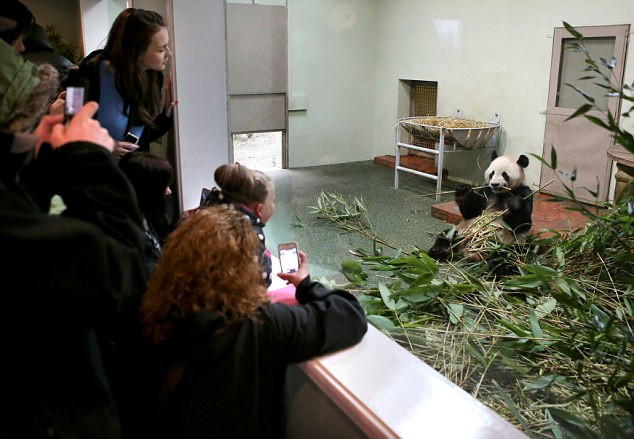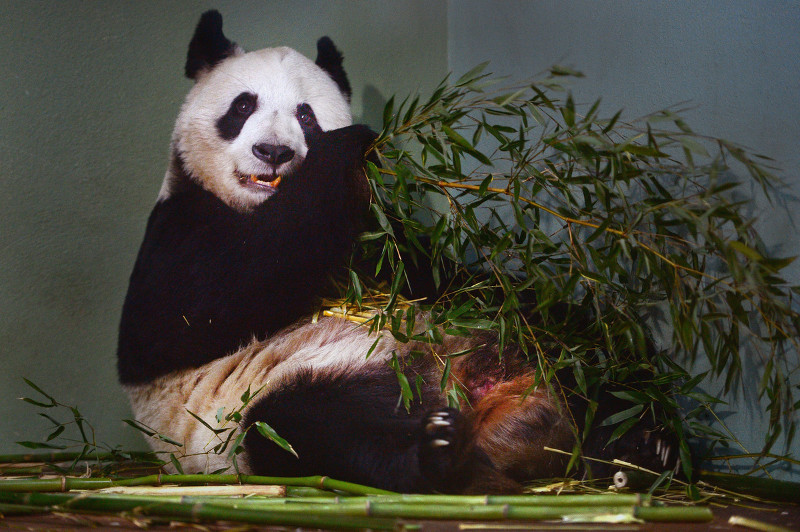Awarded 8 billion for studying pandas
The study of pandas helps scientists open new doors to preserve this endemic animal.
Raccoons eat about 60 different types of bamboo and eat some other small plants and animals. Experts believe that a better understanding of panda diets will help manage and preserve the number of these bears in China.

Tian Tian was shot in 2011.
The two bears Tian Tian and Yang Guang at Edinburgh Zoo, Scotland have provided "specimens" to help scientists develop DNA techniques to help understand the world of these cute animals.

Panda is considered a "diplomatic offering" in China.
In the past, it was very difficult for scientists to understand what eating pandas was. Dr. Linda Neavers, head of the Edinburgh Royal Garden (RBGE) research team, said: "Technology will help detect DNA in panda samples to determine exactly what they eat."
New technologies will help overcome the current human limited understanding of endemic bears in China. Dr. Linda believes that research will open a new "horizon" and help better understand the processes of breeding, mating and behavior. At the same time, this work helps preserve pandas that are in danger in China.

Previously, the pandas were considered "monsters" by the Chinese because of their strange color.
Last year, scientists sampled cells from panda cheeks to identify dangerous diseases, causing the number of these species to decline.
RBGE's latest panda research work in partnership with the Royal Scottish Zoo Association was awarded £ 250,000 (about VND 8 billion) for its achievements. The award is awarded by Leverhulme Trust.
- The extremely rare trio of successful pandas
- Pandas are welcome as 'stars' in Australia
- Bunch of super funny pandas
- Discover the mystery of the big panda
- Giant panda has disappeared in the Red Book
- Find out the ancient giant panda DNA
- Chinese pandas are originally from Europe
- Do pandas not be caused by climate change?
- Chinese pandas return to England after 20 years
- Giant pandas can differentiate through cries
- The ancestors of giant pandas are very short
- The Brazilian physicist won the Templeton prize more than 32 billion
 Animal 'suffering' after hibernation
Animal 'suffering' after hibernation Why do goats climb well?
Why do goats climb well? Scientists were surprised to see chimpanzees eating turtles
Scientists were surprised to see chimpanzees eating turtles Giant catfish died deadly due to drought in Thailand
Giant catfish died deadly due to drought in Thailand